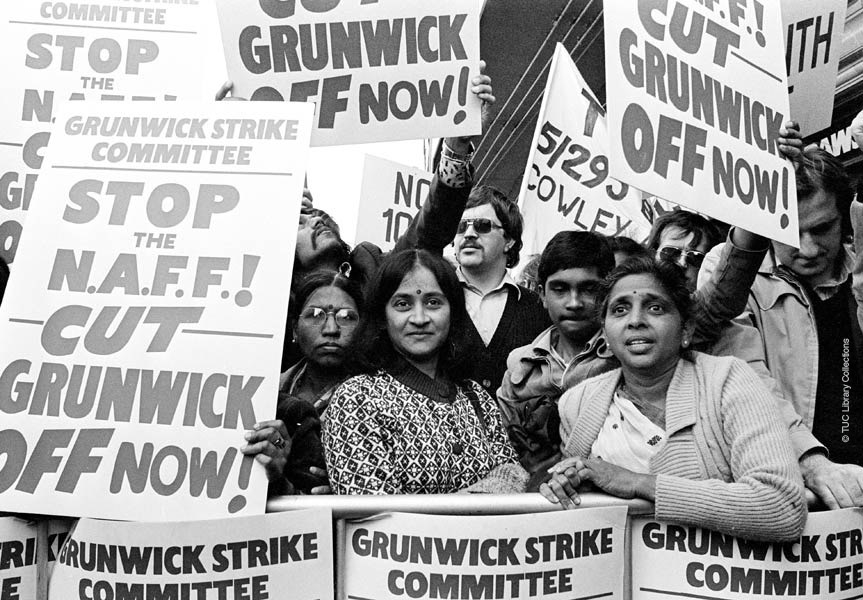On this day in 1976, mail worker Devshi Bhudia was fired, triggering the Grunwick Dispute. The mostly women immigrant strikers enjoyed broad support from rank-and-file labor, but the strike failed after labor leadership declined to support them.
The Grunwick Dispute was one of the first black and migrant worker struggles that won broad support from the labor movement. According to Socialist Appeal, this was in sharp contrast to a 1974 dispute in Leicester, where lay union officials were hostile to the Asian workers. These officials actively colluded to create pay inequity for white and non-white workers.
The Grunwick firm relied almost exclusively on the labor of immigrant women, who were paid poorly and forced to work long hours. Of the company's 440 employees, 80% were of Asian origin and 10% of Afro-Caribbean origin, and application forms for employment at Grunwick asked for passport numbers and "date of arrival in the UK."
The racist basis for these working conditions was explained by the strikers: "Imagine how humiliating it was for us, particularly for older women, to be working and to overhear the employer saying to a younger, English girl 'you don't want to come and work here, love, we won't be able to pay the sort of wages that'll keep you here' – while we had to work there because we were trapped."
The strike was sparked by the dismissal of Devshi Bhudia on August 20th, 1976. Three other workers, Chandrakant Patel, Bharat Patel and Suresh Ruparelia, walked out in solidarity.
By August 23rd, six workers began picketing outside Grunwick offices. Soon, postal workers began to refuse crossing the picket line to deliver mail, and the size of the pickets began to grow as workers from other industries joined the protest in solidarity. In this fashion, the Grunwick Dispute became the first labor struggle where majority non-white strikers received widespread support from the labor movement (similar, previous disputes did not enjoy solidarity from white workers and racist unions).
Meanwhile, Grunwick raised pay by 15% for non-striking workers on the condition that they would not join the union. In June and July of 1977, workers from across London began trying to prevent scabs from showing up to work, leading to violent conflicts with police and widespread media coverage.
The dispute was reported nightly on the national television, often showing violent clashes between strikers and the paramilitary Metropolitan Police's Special Patrol Group. More than 500 people were arrested, the most since the general strike of 1926.
The incumbent Labour government commissioned the "Scarman Inquiry", which recommended both union recognition and re-instatement of the workers, but the employer, backed by the right-wing National Association For Freedom (NAFF) and the Conservative Party, successfully rejected these recommendations.
The Trades Union Congress (TUC) subsequently withdrew their support, and the workers' strike committee announced the end of the dispute in June 1978. The strike's defeat was a major victory for the British right-wing, which began to successfully undermine the power of labor under the leadership of Margaret Thatcher, who became Prime Minister in 1979.
On the strike, one of its leaders, Jayaben Desai, stated: "The strike is not so much about pay, it is a strike about human dignity."
